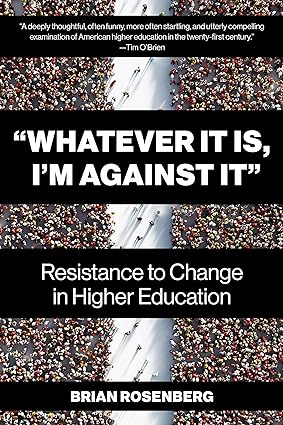James Freeman looks at the latest outrage: The ‘Cereal for Dinner’ Kerfuffle.
If Marie Antoinette had enjoyed a press corps as friendly as today’s Washington politicos do, she might have met a better end. Surging food inflation has inspired some desperate consumers to save a buck by eating inexpensive breakfast cereal for supper, and guess who the media wants to blame. No, not the policy makers at the White House and the Federal Reserve who created the inflation, but a CEO who provides the cereal and has noticed that customers often consume it outside of breakfast time.
“Cereal for dinner is something that is probably more on trend now, and we would expect to continue as that consumer is under pressure,” Kellogg’s C.E.O. Gary Pilnick recently told CNBC.
Naturally the standard rule in the Washington press corps is to avoid blaming politicians who create a problem when there’s a business to scapegoat. “Kellogg CEO under fire for suggesting cereal as a money-saving dinner,” says a Washington Post headline.
I've seen some folks recommending you add in a hard-boiled egg for additional protein. Prices for eggs spiked about a year ago, but they are not unreasonable now:
Notes: egg prices are not inflation adjusted. Journalists' opinions of themselves as economic pundits are drastically inflated.
Also of note:
-
It requires you to suppress that instinct to jerk your knee. At Josiah Bartlett, Drew Cline presents an Econ 101 primer to local advocates: How building more luxury apartments helps the poor.
As pressure builds for local and state policymakers to address New Hampshire’s severe housing shortage, some activists and lawmakers are again blaming developers rather than regulators for the state’s high rents.
Developers are building “too many” apartments for higher-income renters, some claim. This raises rents, hurting the poor, so government must intervene to make builders reserve a certain percentage of new construction for lower-income households, the argument goes. Some also want the state to give subsidies to low-income renters.
The idea that building more apartments raises rents has achieved the status of conventional wisdom in some activist circles. It’s done so despite it being untrue, and confirmed untrue by growing stacks of economic evidence.
This isn't hard to follow. But as we saw above, "activists and lawmakers" search for scapegoats in the private sector to blame and bully.
-
Because California politicians are corrupt. Next question? Eric Boehm asks: Why Is Panera Exempted From California's New Minimum Wage Law?
When fast food restaurants across California have to start paying workers $20 per hour on April 1, one major chain will be exempted from the mandate—and it just so happens to have a connection to a longtime friend and donor to Gov. Gavin Newsom.
Panera Bread is poised to get a boost from a bizarre clause in the fast-food minimum wage law that exempts "chains that bake bread and sell it as a standalone item," Bloomberg reports, adding that "Newsom pushed for that break, according to people familiar with the matter."
Boehm blames Newsom, understandably. But let's also shower some opprobrium on California voters, who elected the legislators and governor. And it's doubtful they'll blame those pols, or themselves, when the fast food restaurants die off or their prices skyrocket. Except for Panera.
-
Wishful thinking. Kay S. Hymowitz reviews Abigail Shrier's new book, Amazon link at your right, and looks at the results When Every Day is a Mental Health Day.
Abigail Shrier’s first book, 2020’s Irreversible Damage, launched the mother of all cancel campaigns. Because the book attributed the sudden and inexplicable rise in juvenile gender anxiety to social contagion rather than the activist-approved explanation of social progress, Shrier, an occasional contributor to City Journal, was branded a “transphobe.” Amazon employees demanded the company remove the book from its virtual shelves. Unlike the suits at Target, who briefly did exactly that, Amazon stopped short of cancelling the book and settled for banning any paid advertising. Despite growing questions about juvenile transgender treatment, including among practitioners, many libraries continue to treat Irreversible Damage as radioactive. Only last month, a Japanese publisher reneged on plans to publish the book, proving that, whether or not transgenderism is contagious, the urge to cancel those out of line with approved ideas unquestionably is.
Shrier’s new book Bad Therapy, an astute and impassioned analysis of the mental-health crisis now afflicting adolescents, may cause a similar emotional meltdown in some corners of American culture. Shrier’s target is more expansive than it was in Irreversible Damage; she aims her fire at the therapeutic mindset that pervades not just the offices of psychologists and counsellors, but elementary, middle, and high school classrooms, best-seller lists, middle-class homes, and government agencies. It’s a pernicious development because a therapeutic mindset easily paralyzes kids’ natural defenses and resilience, hence the crisis we confront today. Assuming a Bad Therapy backlash comes, it is unlikely to be as heated as it was in the case of Irreversible Damage—therapists, who have the most to lose if Shrier’s analysis were to win out, are a more sedate crowd than trans activists—but one hopes that for the sake of the rising generation, any pushback won’t prevent people from heeding the warnings of this important book.
It's been a few months since Portsmouth Public Library proudly celebrated "Banned Books", proudly displaying one of their three copies of Gender Queer in their promotional exhibit. But they don't own either Irreversible Damage or Bad Therapy. Banned?
I think I'll request they purchase Bad Therapy.
| Recently on the book blog:, a report regular blog readers might find of interest: |
![[Amazon Link]](/ps/asin_imgs/B0B2HQHCJP.jpg)
![[Amazon Link]](/ps/asin_imgs/0593542924.jpg)

![[The Blogger and His Dog]](/ps/images/me_with_barney.jpg)



